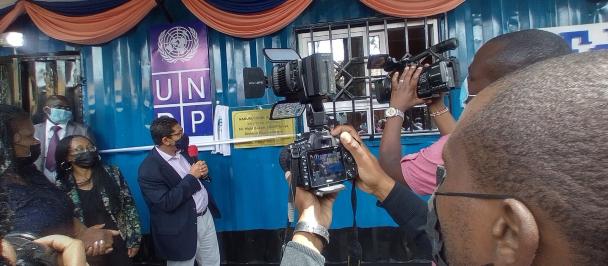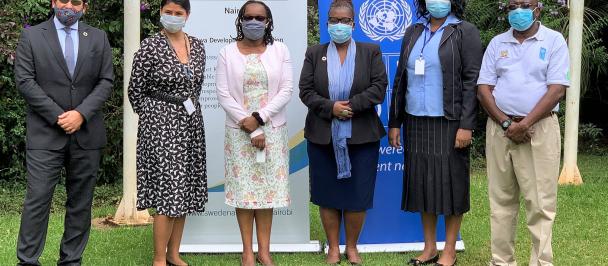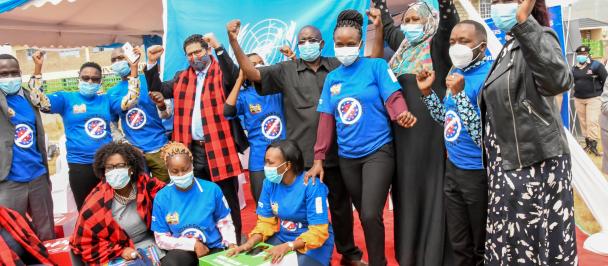Consolidating Gains and Deepening Devolution in Kenya
Background
Kenya has recorded sustained economic growth and progress in human development over the past five years. However, challenges remain on issues related to marginalization, equity, accountability, and the environment. The devolved system of governance instituted with the creation of 47 counties in 2013 offers great promise towards addressing these issues, and the first five years of devolution have provided for the rapid and effective establishment of the counties, but much work remains to install the capacity at national and county levels to address social, accountability, and environmental issues.
Poverty rates remain above 70% in some cases in the remote, arid and sparsely populated northern frontier counties where poverty levels severely affect women, children, and other vulnerable groups. In order to address the urgent human development challenges of the most marginalized, UNDP, as management agents, has developed a joint programme with UNICEF and UN Women that will target 14 of the most marginalized counties directly. The programme’s reach will be extended and sustained through the use of national and regional institutions, such as the Council of Governors (CoG), the Kenya School of Government (KSG), the County Assemblies Forum (CAF) and the Frontier Counties Development Council (FCDC) for county-to-county capacity building and peer learning.
The joint programme will utilize a strong field presence and the UN Agencies’ close relationships with county and national governments to focus on improving county governance capacity in areas related to Public Financial Management (PFM), performance monitoring and reporting, resilience to environmental risks, citizen engagement and inclusiveness (especially policy concerns of women, youth and persons with disability).
Project objectives
This project will target 14 counties; Garissa; Wajir; Mandera; Marsabit; Isiolo; Lamu; Tana River; Turkana; Samburu; Kilifi; Kajiado; Narok; West Pokot; and, Busia. It will adopt a strategy that aligns all interventions to national and county plans as outlined in various policy documents including the CIDPs and MTP III, ensuring participation and extensive consultation of all key stakeholders to identify synergies and reduce the potential for duplication of activities. The programme will focus on strategic interventions that address structural and procedural issues and capacity bottlenecks in devolved governance thus catalyzing enhanced service delivery by the county governments.
To achieve these objectives the following outputs are envisaged:
- National and county governments have strengthened capacities for formulation and implementation of policy, legal and institutional frameworks and mechanisms for coordinated, inclusive and effective service delivery at devolved level;
- Public financial management institutions have strengthened processes and systems for equitable, efficient and accountable service delivery;
- County level institutions have strengthened capacity for evidence-based planning, budgeting, implementation, monitoring and evaluation for accountable service delivery; and,
- People in Kenya have capacity to engage, deepen accountability and transparency in devolution, especially women, youth and persons with disability.

 Locations
Locations


